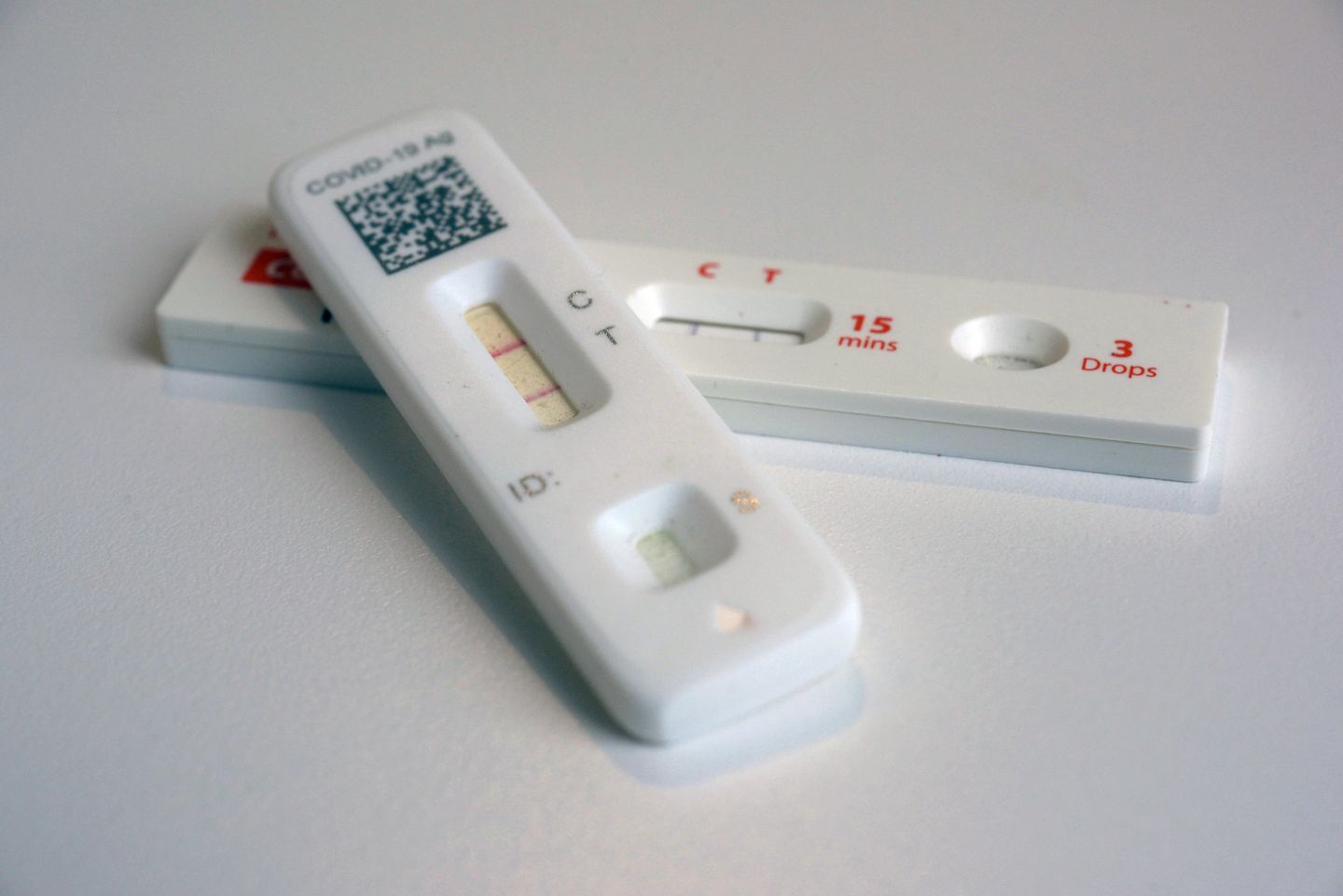
A new study finds that nearly 1 in 3 adults have no intention of testing at home for COVID when they suspect an infection, largely because they see no need.
Researchers conducting a nationally representative online survey of 2,009 adults from Oct. 31 to Nov. 7 found that 30% shrugged off the need for home testing. That’s more than double the 14.9% of respondents who expressed the same sentiment in a similar 2021 study.
Six public health researchers from the University of Massachusetts Chan Medical School in Worcester published the findings Monday in JAMA Network Open.
Kimberly A. Fisher, a university medical professor who co-wrote the study, said the findings show an ongoing need for at-risk adults and those who live around them to get tested within five days of displaying COVID symptoms.
“Not testing could result in a missed opportunity for someone to receive an effective treatment that they might benefit from,” Dr. Fisher, a lung specialist, said in an email. “The other benefit of testing is to avoid spreading COVID-19 to someone who may be at high risk of becoming seriously ill from it.”
The study pointed to a Centers for Disease Control and Prevention estimate that 28,000 to 46,000 people died nationwide and 230,000 to 390,000 were hospitalized from COVID between October 2024 and April 2025.
Nevertheless, Dr. Fisher said the need for testing has dropped dramatically from the height of the pandemic.
“I do not think that people should feel obliged to test if they think it’s not necessary,” she added. “Rather, I am eager for people to have the information to make the best decision for themselves and their community.”
According to some medical experts not connected to the study, people who do not test for COVID could also miss catching other health problems.
“Knowing one doesn’t have COVID could prompt them to test themselves for influenza or seek medical attention for another infection,” said Dr. Amesh Adalja, an infectious disease specialist and senior scholar at the Johns Hopkins Center for Health Security.
Others questioned the study’s finding that 70% of people surveyed expressed an intention to test, given that 95% of the U.S. population has now developed immunity to the virus.
They pointed out the vagueness of the survey asking adults if they “suspected” they might have COVID.
“Truth be told, I am skeptical of the result,” said Dr. William Schaffner, a professor of preventive medicine at Vanderbilt University Medical Center. “Nowadays, COVID is perceived by many as no worse than a bad cold.”
He said that only caregivers, pregnant women and people 65 or older with compromised immune systems should consider COVID testing an urgent need at this point.
Dr. Meryl Nass, an internist and critic of pandemic health mandates who serves as a scientific board member at Children’s Health Defense, said Americans often give unreliable answers about their intentions in public health surveys.
“Many people lie,” said Dr. Nass, a skeptic of COVID-19 treatments whose advocacy group was founded by Health and Human Services Secretary Robert F. Kennedy Jr.
For more information, visit The Washington Times COVID-19 resource page.












